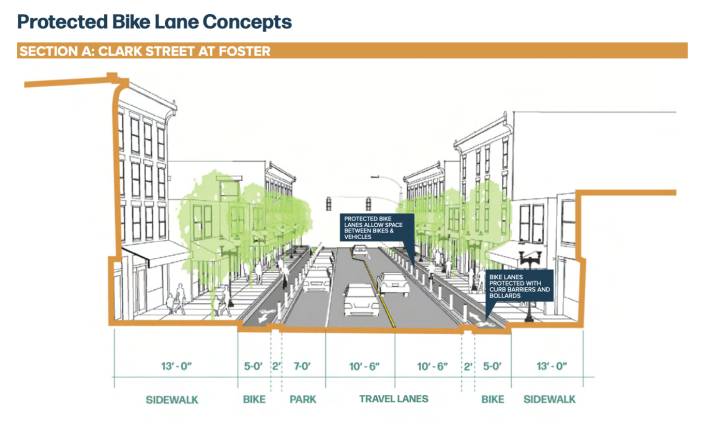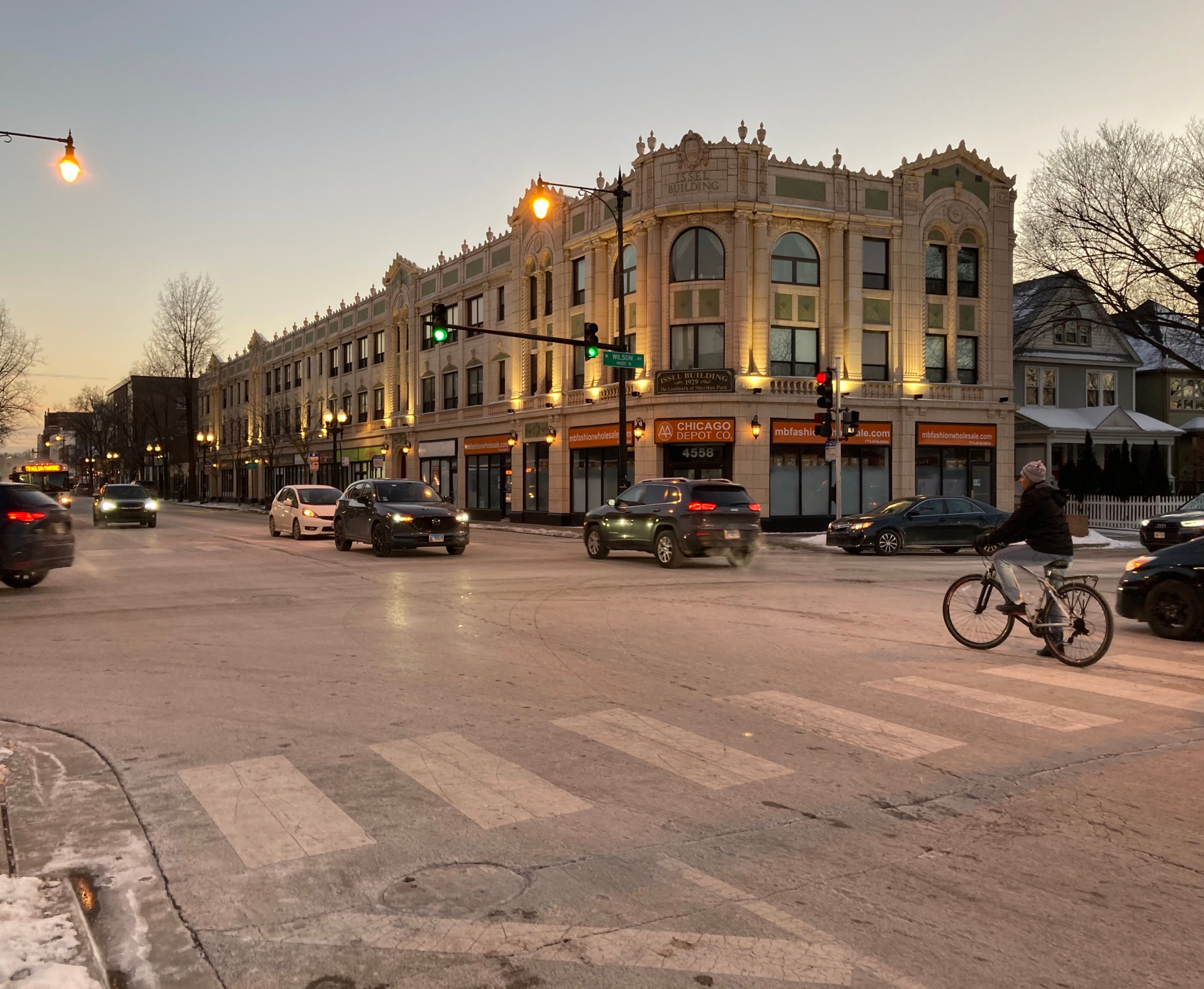Register for tonight's 5 p.m. online meeting on the Clark Street Crossroads Plan here.
Last July at a public input session for the city's Clark Street Crossroads study for the corridor between Montrose (4400 N.) and Foster (5200 N.) avenues in Uptown, the research team said they'd received “strong feedback” from an online survey that residents want to prioritize biking. At the meeting, attended by nearly 100 residents, there was also plenty of support for installing physically protected bike lanes, rather than just painted lanes, which are fairly useless for protecting bike riders from dangerous drivers or encouraging new people to ride. Protected lanes already slated for construction on Clark between Irving Park Road (4000 North) and Montrose.
A draft of the Clark Street Crossroads report released on January 6 proposes converting curbside parking on one side of Clark north of Montrose to make room for protected bike lanes. This approach is already planned on much of the stretch south of Montrose.

Unsurprisingly, the proposal is freaking out some residents who believe that super-easy car parking is a crucial ingredient for vibrant business and residential corridors. The anonymous neighborhood news blog Uptown Update wrote last Thursday, "Needless to say, this [proposal to swap parking for a bike lane] hasn't been popular with people who want the corridor to flourish."
That's a pretty hilarious statement. So the many neighbors who said they want protected bike lanes on this stretch of Clark, designated by the city a decade ago as a bike-priority Spoke Route for commuting to and from downtown, don't want Clark to flourish?
Uptown Update quoted a few of its readers on the subject – here are some examples:
- "Are they insane? No way that commercial stretch from Argyle to Foster survives without parking."
- "[I]f I were a restaurant or bar owner I would never open in those new spaces on [the 4500 Block of] Clark with no parking."
- If things get built and we, thank God, get businesses to open, the people won't park on Clark but park on side streets. Ridiculous for residents."
Obviously, the plan isn't calling for this stretch of Clark to be "without parking" or have "no parking." And some residential streets along the corridor already have permit parking, and if the need arises permit parking could be implemented on other side streets.
There's plenty of parking now. Is this a flourishing corridor?
— Maggie Hendricks (@maggiehendricks) January 28, 2023
"The way of the future is not to accommodate drivers," noted one commenter on Thursday's Uptown Update post. "Our city has so much potential to become a walkable, transit-rich city to the point where you wont even feel the need to drive. This change doesn't even scratch the surface for what's possible."
You can voice your support for the parking conversion for protected bike lanes, as well as other sustainable transportation proposals in the report, during tonight's 5 p.m. virtual community meeting. Whether or not you can attend the meeting, you can also provide input on the plan via this online survey.
This post incorporates earlier reporting by Courtney Cobbs.




